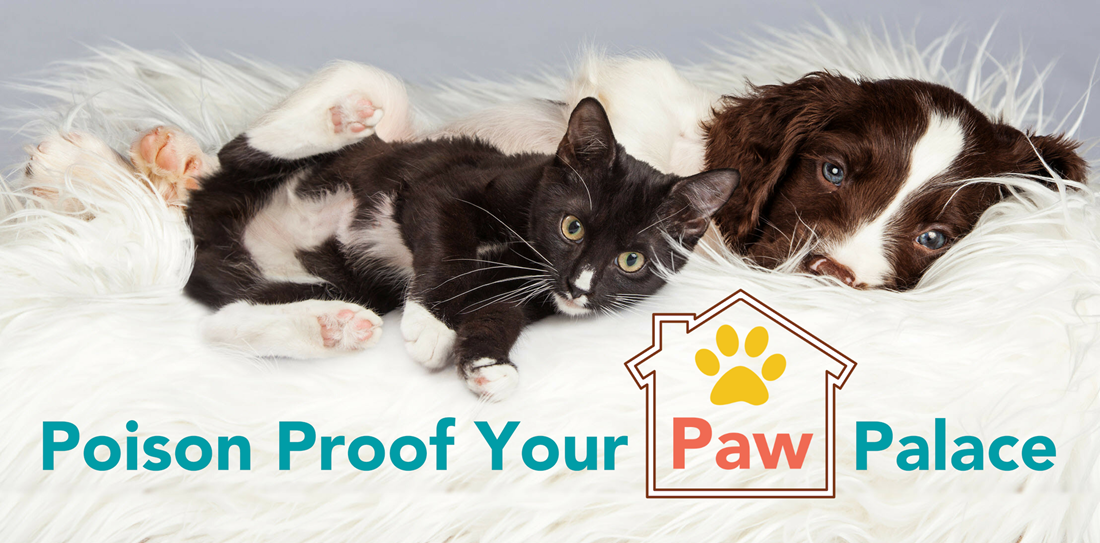

| Child-proofing your home is standard practice for most people with kids in their lives -- keep the matches, medicines, chemicals, and cleaners locked up or out of reach to keep children safe from toxic substances and other hazards. Pet-proofing your home to keep your pet safe from hazards and accidental poisoning is just as important, and possibly even more challenging. |
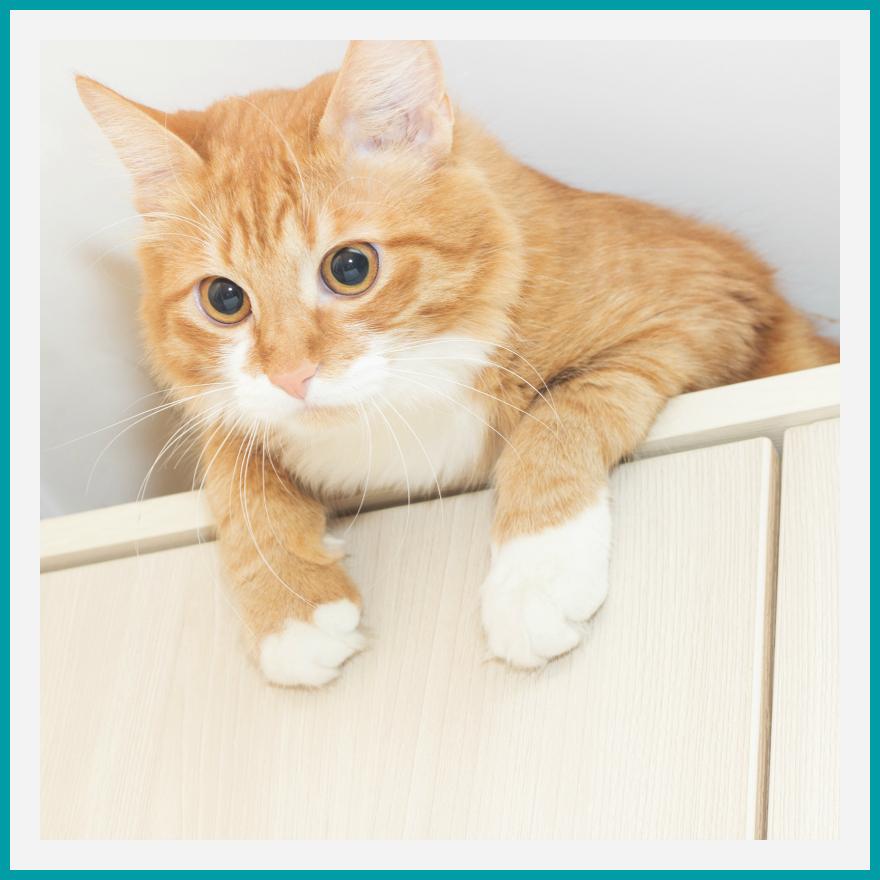 |
Pets are a lot like inquisitive, adventurous toddlers, but even more agile and mobile. Many can easily find access to unexpected spots, from the forgotten back corner of a closet to the highest bathroom shelf.
They even share the same curious penchant for exploring the world with their mouths (dust bunny, anyone? plastic wrapper? mmm!). |
| But what makes pet-proofing especially difficult is that many of the items potentially toxic to our animal family members are things we humans use or ingest every single day. So let's take a look at some of those potential sources of pet poisoning, and talk about how to prevent them. |

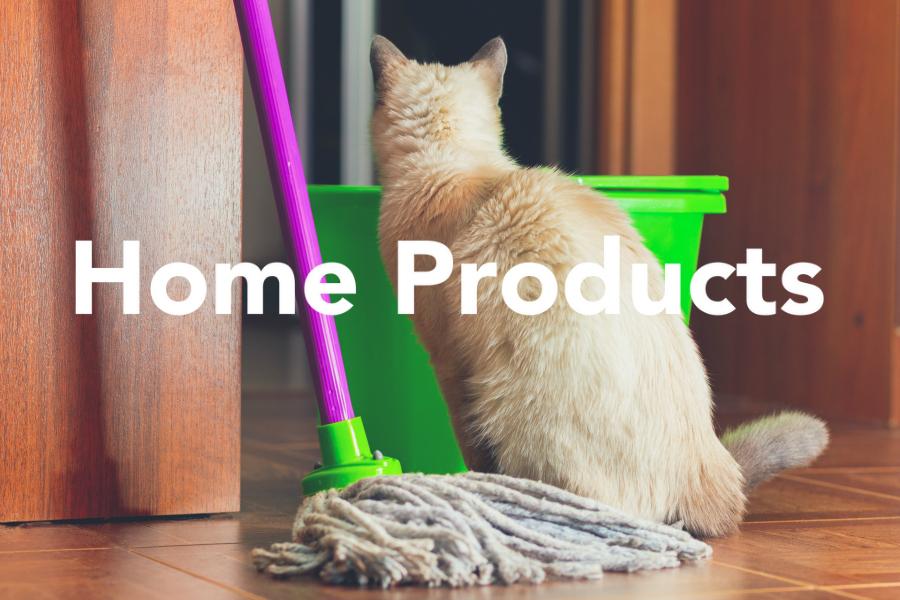
 |
Some household chemicals and cleaners like bleach, fabric softener sheets, and toilet bowl cleaners and tablets |
 |
Batteries |
 |
Cigarettes, e-cigarettes, vaping devices and e-juice, nicotine patches |
 |
Some essential oils and liquid potpourri can be harmful to cats and dogs |
 |
Mosquito repellent with DEET |
 |
“Pest prevention" items like rodent poison and snail bait |
 |
Items containing zinc, such as some sunscreens, diaper rash ointments, galvanized nuts and bolts, and coins |
 |
Ethylene glycol, commonly used in antifreeze |
 |
 |
Use trash cans with secure lids. Always dispose of hazardous waste according to state and county laws. |
 |
Carefully follow product label instructions to minimize pet dangers and consider using non-toxic products. Keep in mind that cats' affinity for cleanliness can get them into trouble, as they can inadvertently ingest substances on their body's surface while grooming. |
 |
Keep toilet lids down to deter thirsty pets (yuck! good thing they're cute, right?). |
 |
Secure cleaning products safely away. Consider using toddler-proof latches. |
 |
If you use rodenticides, keep them where your pets can't get to them and dispose of any affected rodents in a secure trash bin |

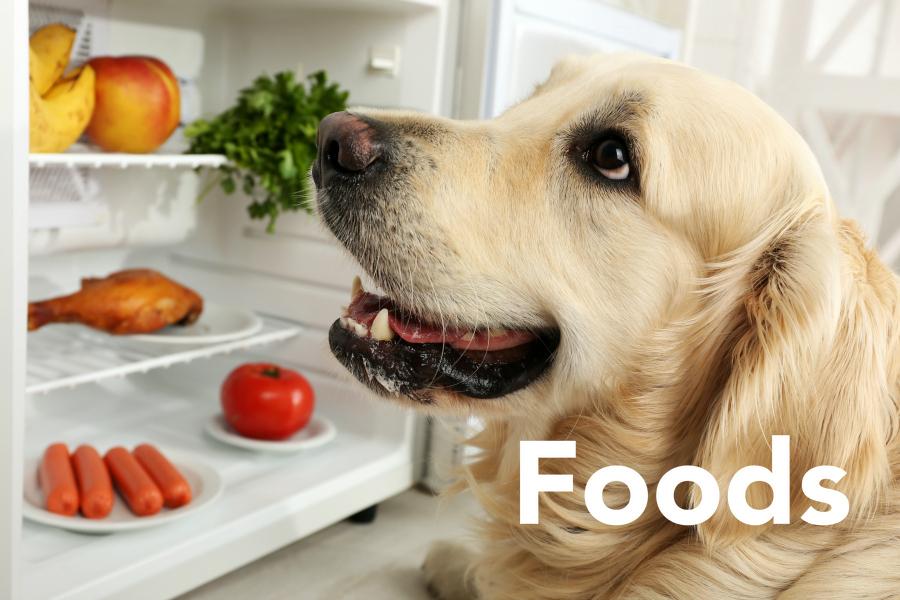
 |
Human foods like alcoholic beverages, grapes, raisins, chocolate, onions and garlic, caffeine, avocado, macadamia nuts, and some kinds of raw fish, to name a few. Click here and filter by foods for a complete list. |
 |
Xylitol, an artificial sweetener commonly used in sugarless gum and breath mints, and growing in popularity in other foods, like some lower-calorie desserts and nut butters, (yes, including some peanut butters!). Xylitol is potentially lethal for dogs. |
 |
Excess sodium, found in table salt, rock salt, ocean water, paint balls, homemade play dough, and enema solutions |
 |
Cannabis overdose, when used in "edibles" and in non-edible form |
 |
 |
Avoid giving your pet people foods as a treat. Some foods may be ok to share, but it’s best to do so in moderation, and ideally to check with us first. |
 |
Check labels for hidden ingredients, like xylitol used in some nut butters. |
 |
Keep your handbag, backpack, lunch tote, etc. out of your pet's reach at all times. |

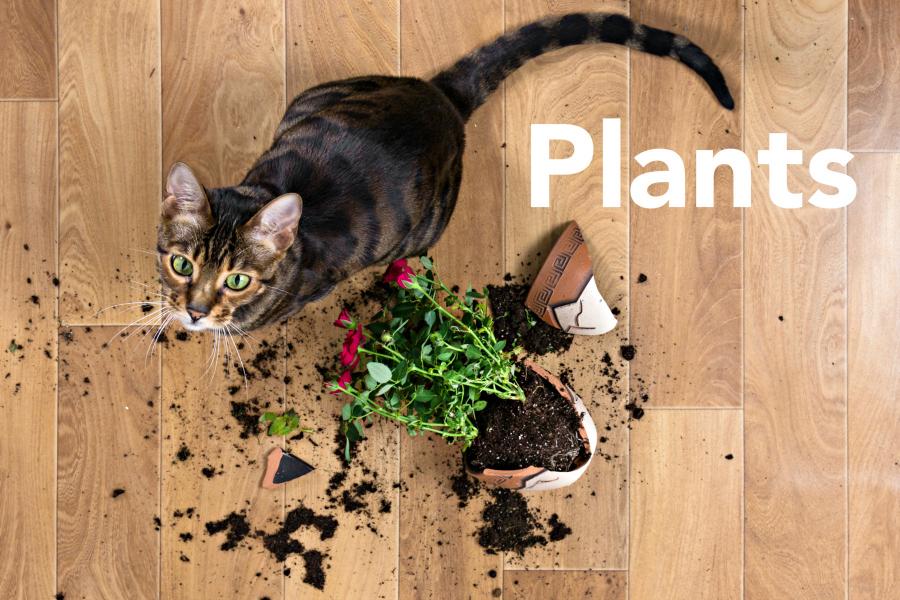
 |
Common house plants such as tulips, lilies, sago palm, daffodils |
 |
Common garden plants such as chrysanthemum, English ivy, azaleas, rhododendrons |
 |
Specific kinds of (not all) mushrooms, most commonly the Death Cap. These can flourish growing wild in backyards in their native areas. |
Click here for a list of plants potentially dangerous to dogs.
Click here for a list of plants potentially dangerous to cats. |
 |
 |
Don't let your green thumb get discouraged; there are loads of beautiful plants safe to have around your furry friends. Have fun exploring different kinds of plants for your indoor and outdoor gardens! This article includes names and pictures of toxic plants at the top, then pet-safe plants beneath. |
 |
Certain types of lilies, commonly used for holiday decor at Easter and Christmastime, are extremely dangerous to cats, causing kidney failure if ingested. Use fake versions or make safe live plant substitutions. |

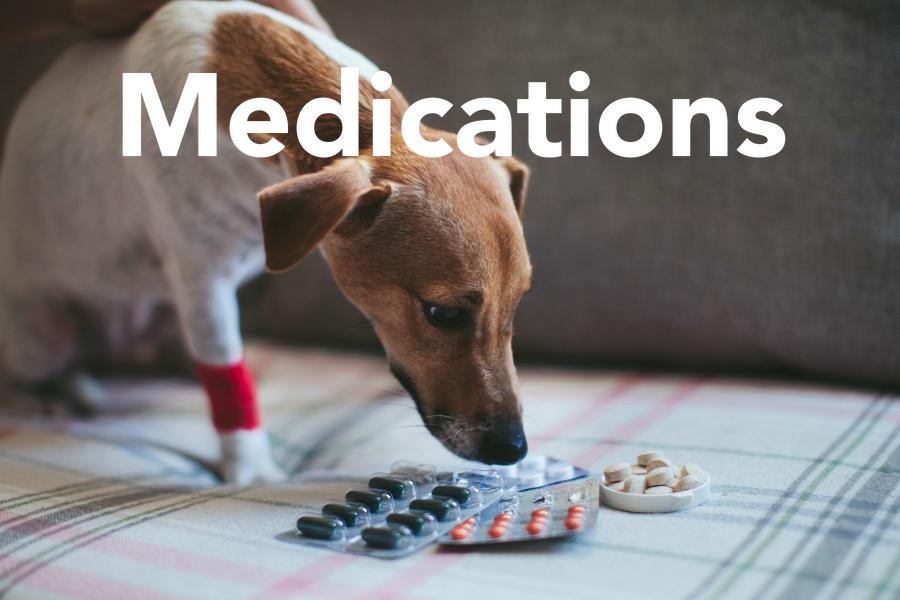
 |
Many common human medications like Ibuprofen, Acetaminophen, Naproxen, Pseudoephedrine, Kaopectate, and Pepto Bismol. |
 |
Flea and tick products, if not applied properly, used on the wrong species, or when inappropriately administered (e.g. when a topical product is eaten). Be aware that some flea/tick preventives intended for dogs can actually kill cats! |
 |
 |
Keep all medications (including those in child-proof bottles, which most dogs would consider a fun chew toy) in cabinets that are inaccessible to pets. |
 |
If you drop a pill on the floor, pick it up before Fluffy and Fido have a chance to pounce on it. |
 |
If you fear your pet is in pain, contact us. Pets are part of the family, but they're not small, furry humans. Human pain medications like Tylenol/Acetaminophen and NSAIDs (nonsteroidal anti-inflammatory drugs) like Advil/Ibuprofen are not safe for pets. |
 |
Always follow guidelines on flea or tick products. Unlike ice cream, more is not always better (and can actually be extremely harmful). Never administer products labeled for different species. |

 |
| While the signs and symptoms of poisoning in pets will vary depending on the type of toxin and how much was ingested, some of the most common signs of pet poisoning include: |
| Vomiting * Diarrhea/upset stomach * Seizures * Lethargy * Loss of appetite * Drooling * Abnormal behavior * Excessive thirst or urination * Weakness |
|
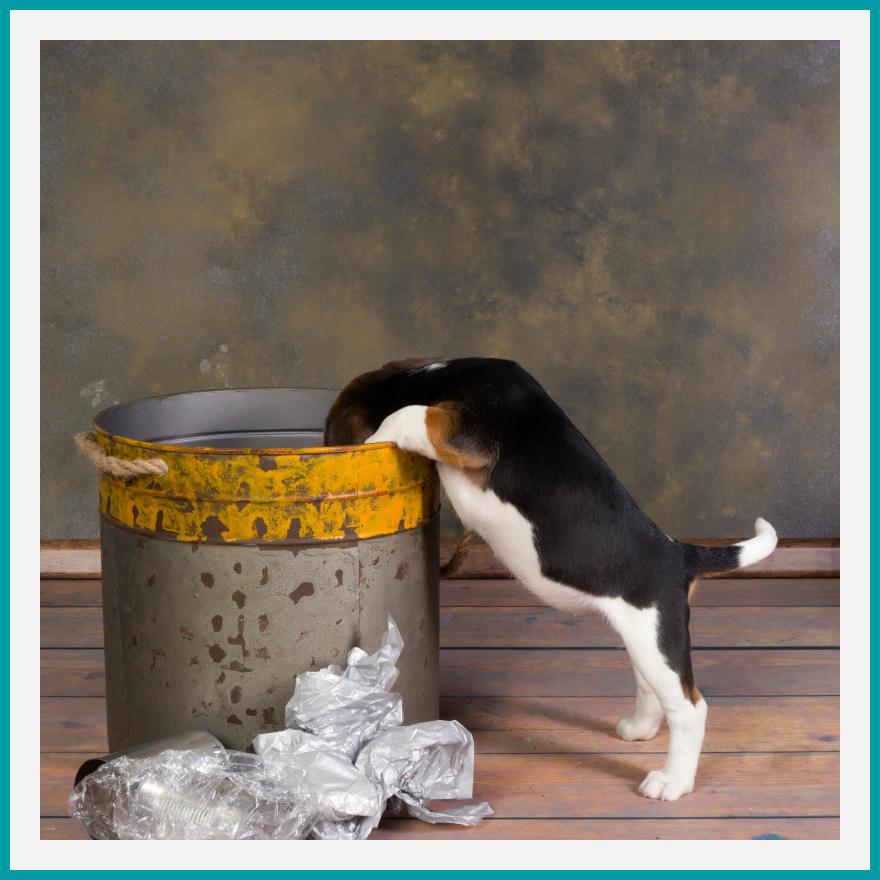 |
| If you know or suspect your pet may have ingested something toxic, don’t wait to seek medical help -- contact us and/or a poison control center for pets immediately. Try to obtain and keep a sample of the suspected toxins (or the wrapper) on hand for reference. |

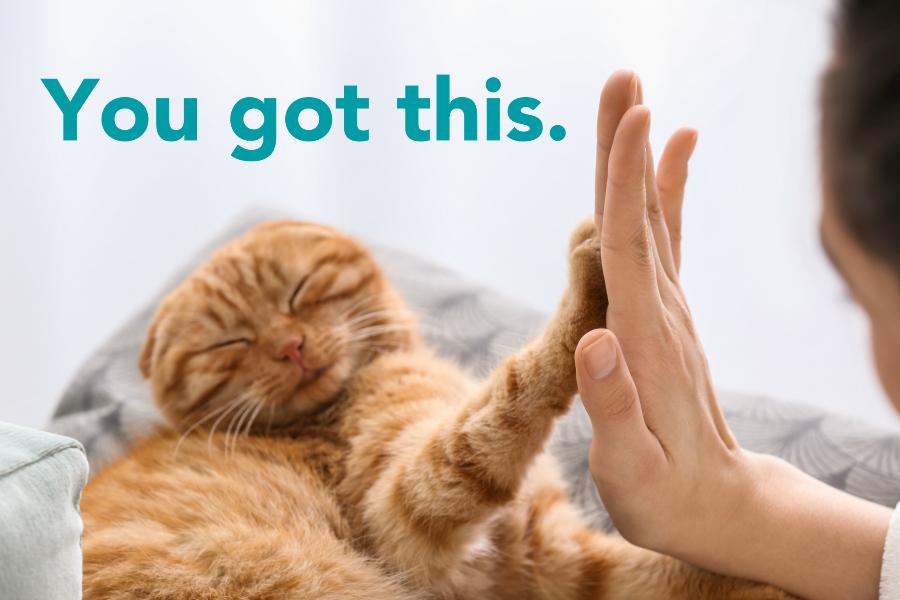
It can feel pretty scary and even overwhelming to consider all of the potentially pet-toxic items we have and use in our homes every single day. Fortunately for your best pet friend, a well-informed and caring owner like you is the key to a safe and comfortable, poison-proofed paw palace! If you have any questions or would like more information about keeping your pet safe from everyday poison hazards, give us a call today.
 |
For more info, visit:
Veterinary Partner
Pet Poison Helpline
ASPCA Animal Poison Control |
Numbers to keep handy:
Pet Poison Helpline: 855-764-7661
ASPCA Poison Control: 888-426-4435 |
|
|













